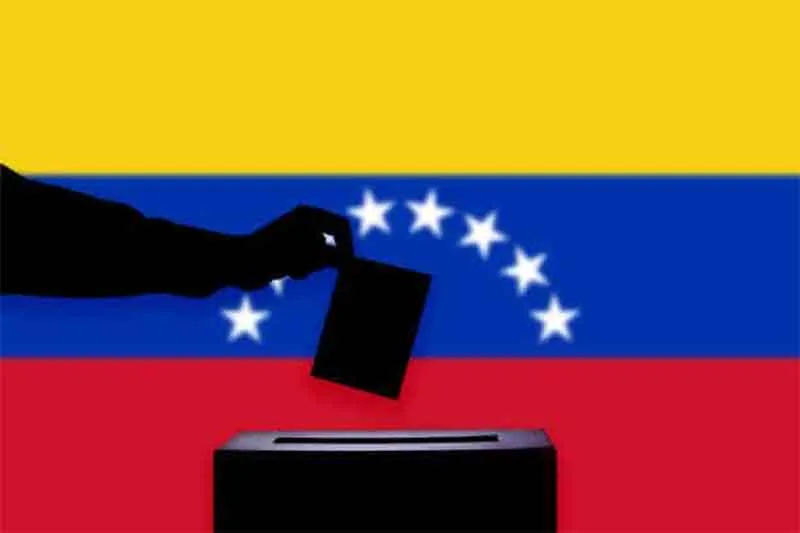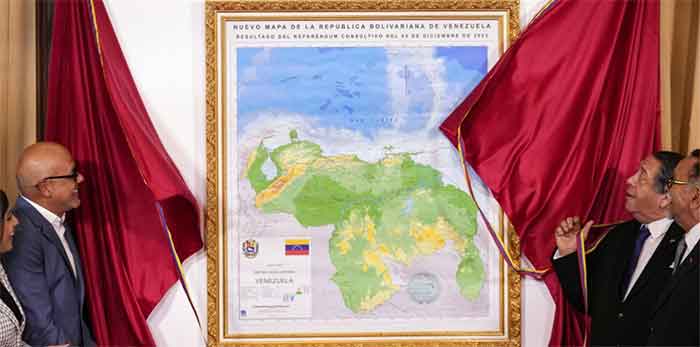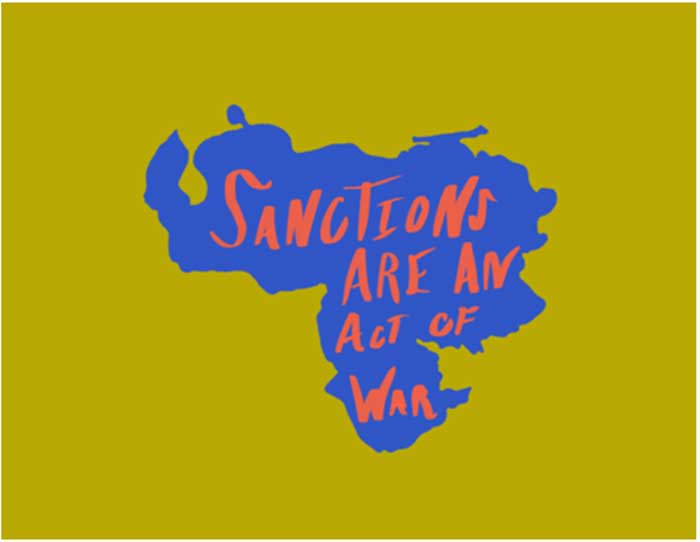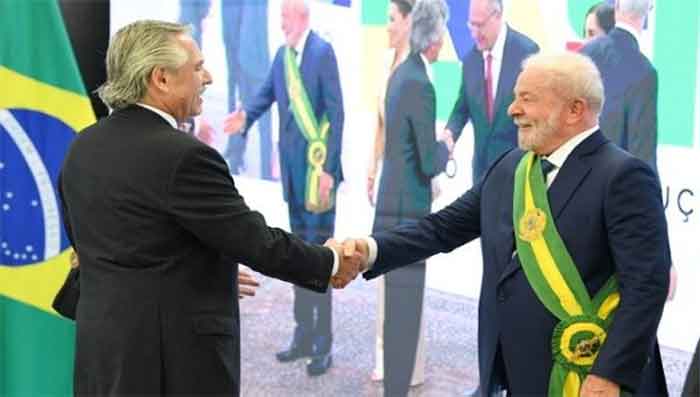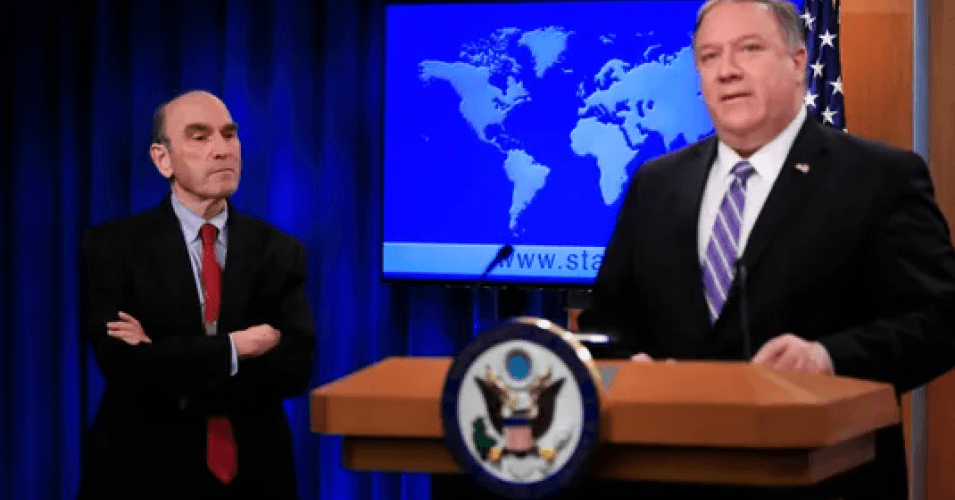
The men directed by President Donald Trump to “handle” the situation in Venezuela are not clear-headed diplomats capable of working for peace and democracy. They are war criminals and should be behind bars.
The Trump administration is currently working to overthrow Venezuelan President Nicolás Maduro in the name of freedom and democracy. Yet Washington’s efforts will only lead to bloodshed and a worsening of the country’s crisis and polarization.
Just take a look at who is leading the coup efforts from Washington.
U.S. national security advisor John Bolton has been pounding the war drums against Venezuela since the US recognized Juan Guiadó as self-declared “Interim President” of the country last week.
At a news conference on Monday, Bolton raised eyebrows with a notepad he was holding that said “5,000 troops to Colombia.” While this may or may not signal that the U.S. is seeking to invade Venezuela from its neighboring country, it does highlight the implications of the Trump White House keeping “all options on the table” when it comes to Venezuela.
Bolton is no stranger to violent, intractable regime change. Back in the lead up to the Iraq War, he was a key figure in the Bush administration who helped dupe the public into believing Saddam Hussein had weapons of mass destruction. The result was one of the most catastrophic and far-reaching conflicts in modern history.
Meanwhile, Elliot Abrams has been tapped as a special envoy to handle the current U.S. involvement in Venezuela. Abrams is an infamous hawk who oversaw horrific massacres in El Salvador in the 1980s and led and covered up the Iran-Contra scandal under Reagan.
“This crisis in Venezuela is deep and difficult and dangerous,” Abrams said after his appointment. “And I can’t wait to get to work on it.”
These men are not clear-headed diplomats capable of working for peace and democracy. They are war criminals and should be behind bars.
As other U.S. regime change efforts in Latin America and around the world have shown, intervention in Venezuela will likely result in a political and social disaster. One case in point is the US enabling of the Honduran coup in 2009, which helped create the culture of violence and impunity that so many are fleeing today through the migrant caravan.
The sanctions the U.S. put in place this week against Venezuela will certainly pressure the Maduro government, but the people who will suffer the most from them are the poorest sectors of society.
Regardless of Maduro’s authoritarian tendencies, U.S. support for a coup, severe sanctions, and a possible military intervention will only deepen and extend the crisis. Instead, Washington should back Mexico and Uruguay in calling for peaceful negotiations between Maduro and the opposition – negotiations which Maduro has agreed to.
A negotiated settlement could be a viable, peaceful way forward in the midst of the current impasse.
“The worst option is war,” ex-Uruguayan President and former leftist guerrilla José Mujica said about the need for peaceful negotiations in Venezuela. In war, he said, those who die and suffer the most are “those who have no responsibility” for the crisis.
Benjamin Dangl is a doctoral candidate in Latin American History at McGill University, and the author of the books Dancing with Dynamite: Social Movements and States in Latin America, and The Price of Fire: Resource Wars and Social Movements in Bolivia. He edits UpsideDownWorld.org, a website on activism and politics in Latin America, and TowardFreedom.com, a progressive perspective on world events. Follow him on Twitter: @bendangl
Originally published by CommonDreams

